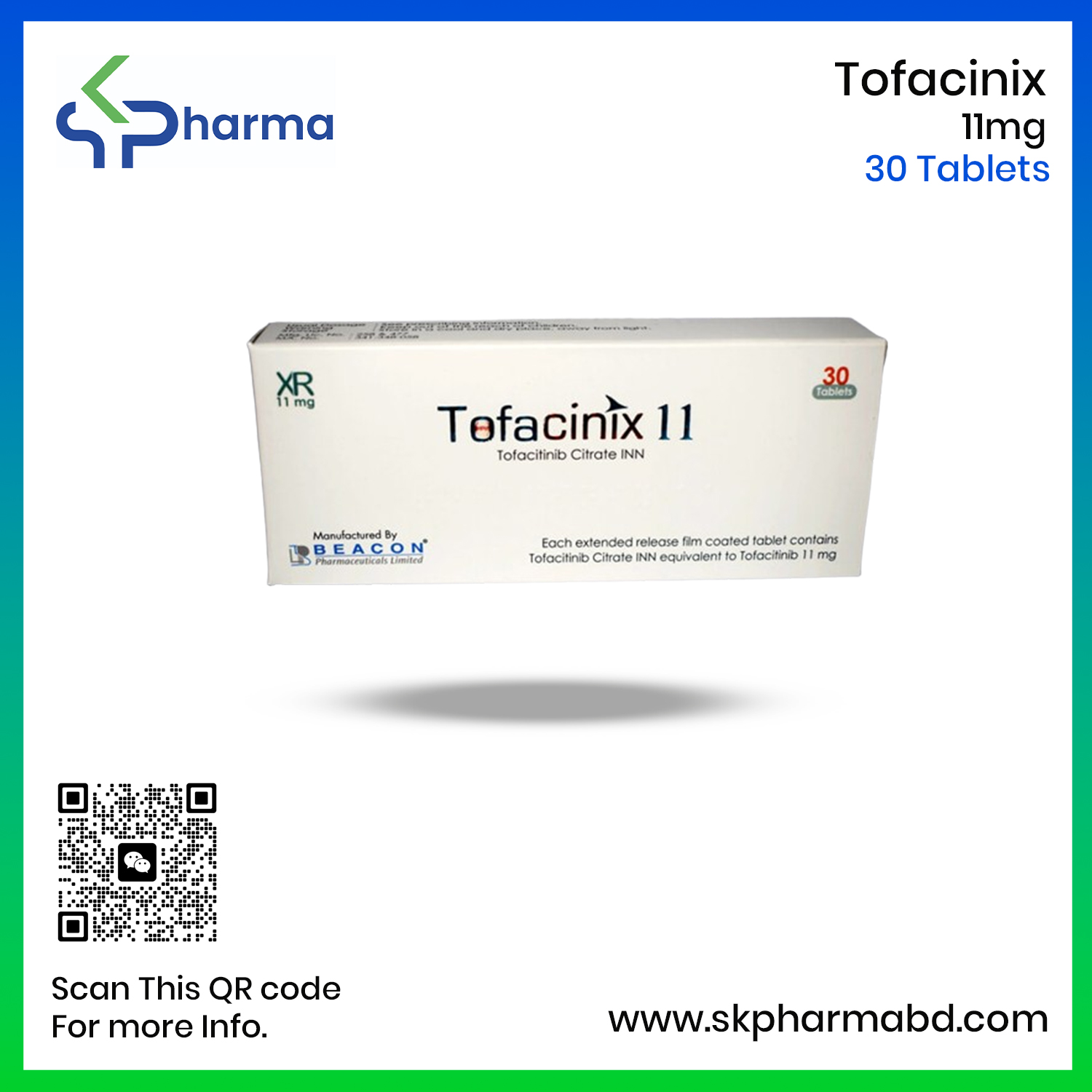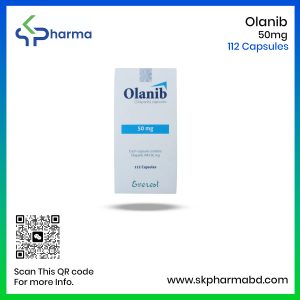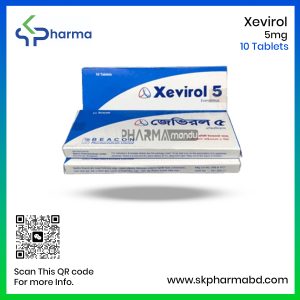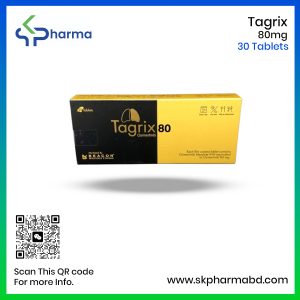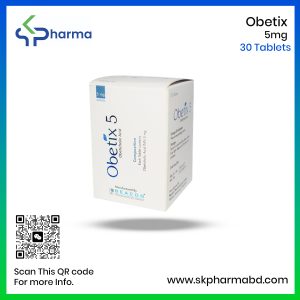Tofacinix 11 Mg (Tofacitinib)
Related products
Product Description
Tofacinix 11 mg (Tofacitinib)
Product Name : Tofacinix
Generic Name : Tofacitinib
Formulation: Tablet
Available Pack Size: 3×10’s Alu-Alu
Available Strengths: 11 mg
Categories: Anti-viral, Biotech Products, Drugs to treat Hepatitis
Manufacturer: Beacon Pharmaceuticals Ltd.
Indications
Rheumatoid Arthritis: Tofacitinib is indicated for the treatment of adult patients with moderately to severely active rheumatoid arthritis who have had an inadequate response or intolerance to methotrexate. It may be used as monotherapy or in combination with methotrexate or other nonbiologic disease-modifying antirheumatic drugs (DMARDs).
Psoriatic Arthritis: Tofacitinib is indicated for the treatment of adult patients with active psoriatic arthritis who have had an inadequate response or intolerance to methotrexate or other disease-modifying antirheumatic drugs (DMARDs).
Ulcerative Colitis: Tofacitinib is indicated for the treatment of adult patients with moderately to severely active ulcerative colitis (UC).
*Take according to the doctor’s advice
Therapeutic Class
Immunosuppressant
Pharmacology
Rheumatoid arthritis is an autoimmune disease characterized by a dysregulation of pro-inflammatory cytokines including IL7, IL15, IL21, IL6, IFN-alpha, and IFN-beta. (3) Cytokine signaling results in tissue inflammation and joint damage by stimulating the recruitment and activation of immune cells via the Janus kinase signaling pathway.
Tofacitinib is a partial and reversible Janus kinase (JAK) inhibitor that will prevent the body from responding to cytokine signals. By inhibiting JAKs, tofacitinib prevents the phosphorylation and activation of STATs. The JAK-STAT signaling pathway is involved in the transcription of cells involved in hematopoiesis, and immune cell function. Tofacitinib works therapeutically by inhibiting the JAK-STAT pathway to decrease the inflammatory response. However, there is evidence to suggest that it may also achieve efficacy via other pathways as well.
Dosage & Administration
Rheumatoid Arthritis: Tofacitinib 5 mg twice daily or Tofacitinib 11 mg once daily. Recommended dosage in patients with moderate and severe renal impairment or moderate hepatic impairment is Tofacitinib 5 mg once daily.
Psoriatic Arthritis (in combination with nonbiologic DMARDs): Tofacitinib 5 mg twice daily or Tofacitinib 11 mg once daily. Recommended dosage in patients with moderate and severe renal impairment or moderate hepatic impairment is Tofacitinib 5 mg once daily.
Ulcerative Colitis:
Tofacitinib 10 mg twice daily for at least 8 weeks; then 5 or 10 mg twice daily. Discontinue after 16 weeks of 10 mg twice daily, if the adequate therapeutic benefit is not achieved. Use the lowest effective dose to maintain response.
Recommended dosage in patients with moderate and severe renal impairment or moderate hepatic impairment: half the total daily dosage recommended for patients with normal renal and hepatic function.
*Take according to the doctor’s advice
Interaction
Potent inhibitors of Cytochrome P450 3A4 (CYP3A4) (e.g., Ketoconazole)
The recommended dose is Tofacitinib 5 mg once daily: One or more concomitant medications that result in both moderate inhibition of CYP3A4 and potent inhibition of CYP2C19 (e.g., fluconazole)
The recommended dose is Tofacitinib 5 mg once daily Potent CYP inducers (e.g.Rifampin): This may result in loss of or reduced clinical response.
Contraindications
None
Side Effects
The most commonly reported adverse reactions during the first 3 months in controlled clinical trials (occurring in greater than or equal to 2% of patients treated with Tofacitinib monotherapy or in combination with DMARDs) were upper respiratory tract infections, headache, diarrhea, and nasopharyngitis.
Pregnancy & Lactation
Pregnancy Category C. There are no adequate and well-controlled studies on pregnant women. Tofacitinib should be used during pregnancy only if the potential benefit justifies the potential risk to the fetus.
It is not known whether Tofacitinib is excreted in human milk. Because many drugs are excreted in human milk and because of the potential for serious adverse reactions in nursing infants from Tofacitinib, a decision should be made whether to discontinue nursing or to discontinue the drug, taking into account the importance of the drug for the mother
Precautions
Serious Infections: Avoid the use of Tofacitinib during an active serious infection, including localized infections.
Gastrointestinal Perforations: Use with caution in patients that may be at increased risk.
Laboratory Monitoring: Recommended due to potential changes in lymphocytes, neutrophils, hemoglobin, liver enzymes, and lipids.
Immunizations: Live vaccines: Avoid use with Tofacitinib.
Do not initiate Tofacitinib if the absolute lymphocyte count is <500 cells/mm3, an absolute neutrophil count (ANC) is <1000 cells/mm3, or hemoglobin is <9 gm/dL.
Use in Special Population
Pediatric Use: The safety and effectiveness of Tofacitinib in pediatric patients have not been established.
Geriatric Use: The frequency of serious infection among Tofacitinib-treated subjects 65 years of age and older was higher than among those under the age of 65. As there is a higher incidence of infections in the elderly population in general, caution should be used when treating the elderly.
Storage Conditions
Store at 20°C to 25°C

